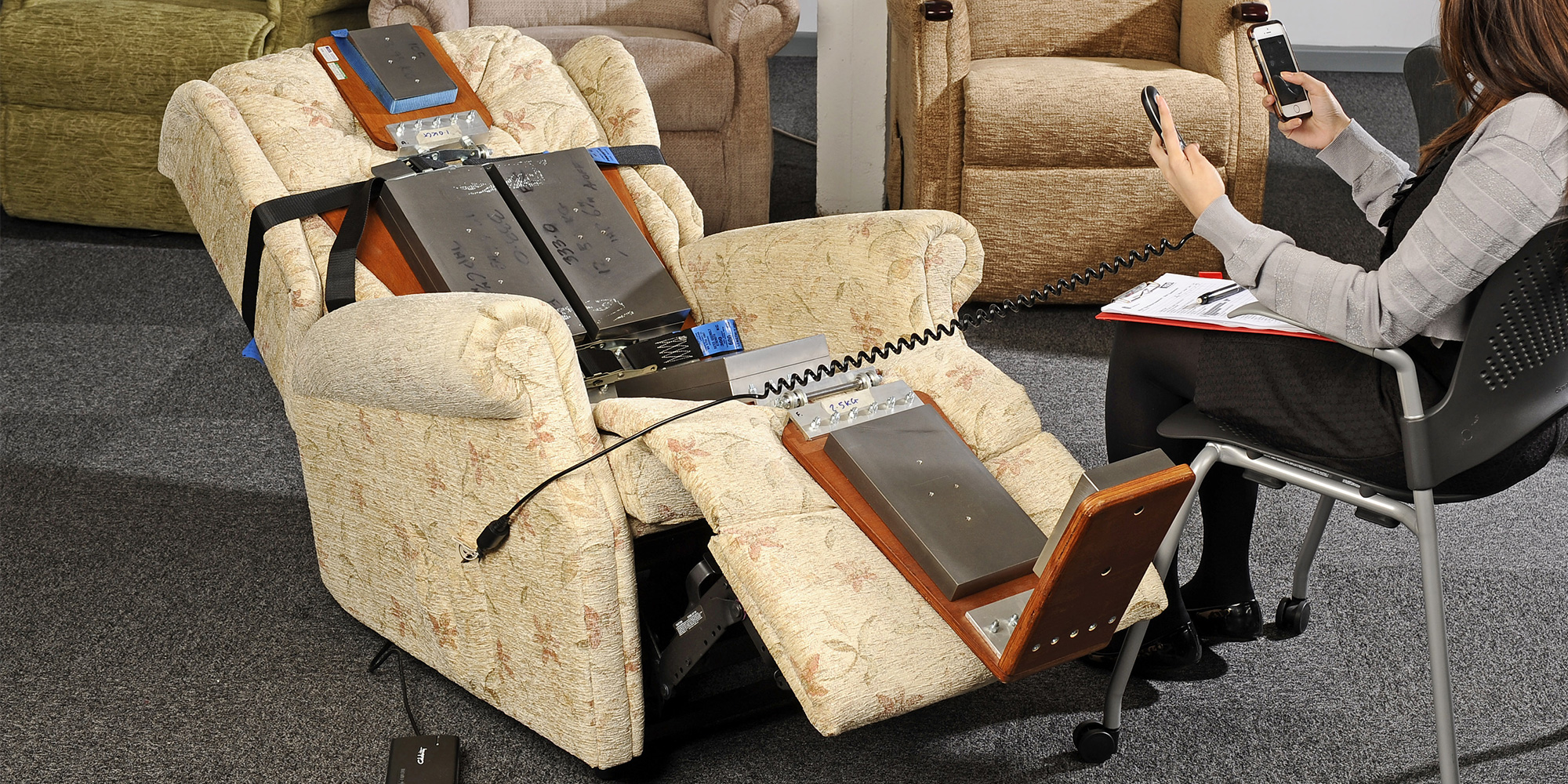ISO 3385 Assessment of Recliner Cushion Loss of Height After Fatigue Testing
The ISO 3385 standard is a recognized international protocol used to evaluate the durability and longevity of recliners, particularly focusing on the cushion loss of height after undergoing fatigue testing. This service ensures that manufacturers can demonstrate compliance with industry standards and provide consumers with confidence in their purchase.
Recliner cushions are designed to support various postures over extended periods, which necessitates robust materials and construction techniques. The ISO 3385 procedure provides a standardized method for assessing the performance of these cushions under simulated real-world use conditions. By subjecting the cushion to repeated cycles of loading and unloading, it is possible to determine how much height loss occurs over time.
The test setup involves placing a standard test block on top of the recliner cushion in its most typical usage position. This position simulates the load distribution experienced by an average user during normal operation. The testing apparatus then applies a prescribed number of cycles, each consisting of loading and unloading actions that mimic real-world movements like sitting down or standing up from the chair.
At predetermined intervals throughout the test, measurements are taken to record any changes in cushion height. These readings allow for accurate quantification of the cushion's performance over time. Compliance with ISO 3385 helps manufacturers ensure their products meet specified durability requirements while also providing valuable data for continuous improvement efforts within R&D departments.
For quality managers and compliance officers, this service offers a reliable means to verify product integrity. It allows them to identify potential weaknesses early in the design process or during production runs, enabling swift corrective actions when necessary. Additionally, it supports procurement teams by ensuring suppliers deliver high-quality components that contribute positively towards overall product performance.
In summary, ISO 3385 plays a crucial role in maintaining consistent quality across all aspects of recliner manufacturing processes. Through rigorous testing procedures like this one, companies can enhance customer satisfaction and build brand reputation based on dependable product offerings.
International Acceptance and Recognition
The ISO 3385 standard has gained widespread acceptance worldwide due to its rigorous approach towards ensuring the longevity of recliner cushions. Many countries recognize this as an essential quality control measure for manufacturers operating globally.
A number of leading furniture companies have adopted ISO 3385 into their internal standards, recognizing its value in enhancing product reliability and consumer trust. Compliance with such internationally recognized specifications can significantly boost a company's market position by demonstrating commitment to excellence in craftsmanship.
The acceptance of this standard extends beyond mere compliance; it serves as an opportunity for manufacturers to showcase superior engineering practices that meet or exceed global expectations. By adhering to ISO 3385, firms are able to differentiate themselves from competitors who may not follow similar stringent protocols during development stages.
Moreover, institutions like universities and research centers often incorporate these tests into their teaching materials and academic papers, further cementing the importance of this standard within both industry circles and educational settings. This recognition helps foster a culture where innovation meets sound scientific methodology, ultimately benefiting all stakeholders involved in furniture manufacturing.
Environmental and Sustainability Contributions
The ISO 3385 assessment not only guarantees the quality of recliners but also contributes positively to environmental sustainability practices. By ensuring that cushions retain their shape over prolonged usage periods, manufacturers can reduce waste associated with frequent replacement due to deterioration.
This durability-focused approach encourages responsible consumer behavior by promoting longer product lifespans. Consumers who invest in durable furniture are less likely to engage in excessive disposal habits, thereby minimizing landfill contributions and resource depletion.
The standard also promotes sustainable sourcing of materials used in cushion manufacturing. Manufacturers must carefully select eco-friendly options that not only meet performance requirements but also align with broader environmental goals set by governing bodies worldwide.
Furthermore, compliance with ISO 3385 can lead to reduced energy consumption during production processes as companies strive for higher efficiency levels through optimized designs and advanced fabrication techniques. Such advancements contribute significantly towards reducing the carbon footprint of furniture manufacturing industries globally.
Use Cases and Application Examples
| Use Case | Description |
|---|---|
| Educational Institutions | Universities and colleges use ISO 3385 assessments to teach students about quality control methods in furniture manufacturing. |
| Manufacturers | Furniture producers incorporate this test into their quality assurance processes to ensure consistent product performance across all units produced. |
| Sales and Marketing Teams | Promotional materials highlighting ISO 3385 compliance can attract environmentally conscious consumers seeking long-lasting products. |
| Regulatory Bodies | Governmental organizations may require adherence to this standard as part of certification processes for certain types of furniture. |
| R&D Departments | Innovative teams leverage ISO 3385 results to identify areas where improvements can be made, leading to enhanced product offerings. |
| Customer Satisfaction | Consumers who purchase recliners that comply with ISO 3385 standards enjoy peace of mind knowing they are investing in durable, high-quality products. |
| Sustainability Initiatives | Companies committed to reducing waste and promoting circular economy principles often highlight ISO 3385 compliance as part of their sustainability initiatives. |
The versatility of this assessment allows it to be applied across various scenarios, from educational institutions to manufacturing plants. Its wide applicability makes it a valuable tool for anyone involved in the design, production, or sale of recliners and other adjustable furniture items.





